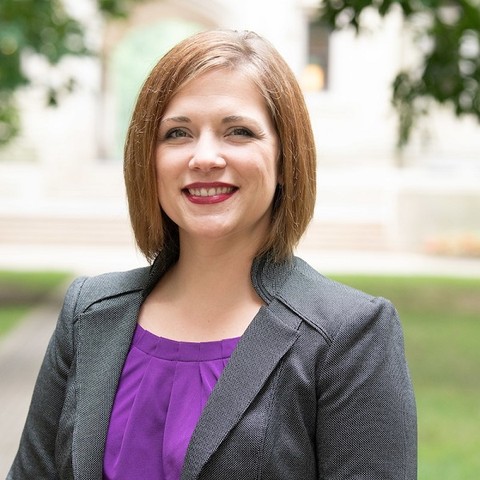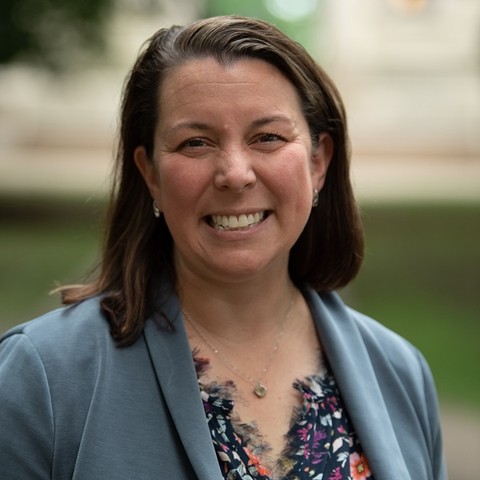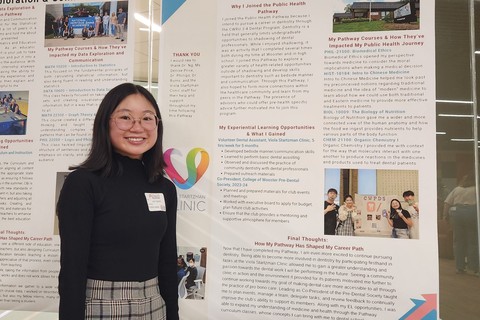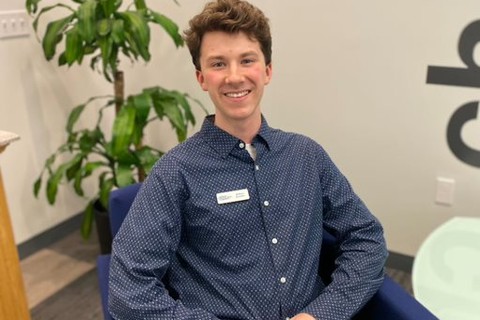


Explore the ways your interests, studies, & career interests intersect and compliment each other

Join a community of students with similar career goals & interests, guided by faculty & staff with expertise in the field

Leave Wooster with a clearer career direction and a stronger resume
The Pathways program at the College of Wooster offers students a flexibly structured approach to career exploration, tailored to their chosen path, whether closely related to their major or more of an “academic side quest.”
Through 3-4 related courses, authentic career experiences such as internships or volunteer work, and guided self-reflection, students are able to really explore a career path but without the level of commitment necessary for a major or minor. Networking with their Pathways peers, faculty, and staff allows students to foster connections that may benefit them even beyond graduation. The Pathways certificate is noted on transcripts, codifying the student’s career-related experiences.
Not only does participation in Pathways enhance applications for further education and employment, but it also provides clarity on career and graduate school goals. Through their experiences in the Pathways program, Wooster students gain valuable insight into career alignment with their values and aspirations, empowering informed decisions and meaningful pursuits.
Pathways FAQs

Pathways reflections and experiential learning requirements are now collected into four PATH courses that function just like other courses*. You will now need to plan and register for these courses and complete them the same way they do all their other classes. A key benefit of this change is that now, instead of being in a separate Moodle, these Pathways courses will show up with your other classes in your Moodle Dashboard so they’re easier to find and easier to remember to complete!
It would be wise to work these courses into your 4-year plan to make sure you complete all of your Pathways requirements on time.
*Note that these “courses” are zero-credit, so you won’t have to worry about having an overload. Additionally, there are no actual class sessions. Rather, the course Moodle will simply serve as a collection point for work and a reminder to complete it before the end of the semester. The new courses are about the same amount of work as the previous reflections; they’re simply packaged differently.
Here’s what you can expect in each course:
PATH 1100x: Initial Reflection
This course asks you to complete three basic steps:
- Spend time reflecting on several questions about why you’ve chosen this Pathway.
- Discuss your thoughts with other Activism students, faculty, and staff.
- Write about how your initial thoughts, the conversations you had with your Pathway community, and any new or different insights you have as a result.
PATH 2200x: Career Planning
For this course, you will explore career and internship resources offered through Career Planning in APEX, specifically Handshake and Fighting Scots Career Connections. You will also craft a career-ready resume. We strongly encourage you to take advantage of the many resources offered by the Career Planning office to bring your resume to a truly professional level. Booking an appointment with a Career Planning staff member or peer advisor to go over your resume is strongly recommended.
PATH 3300x: Experiential Learning
This course asks you to complete an authentic, hands-on experience in one of the career areas you’re exploring. It is more than simply having an experience, however. In order to maximize the benefits and learning you gain, you will deliberately walk through goal setting, planning, and “preflection” (pre-reflection) before you complete the career experience. During and after your experience, you will spend time considering what you learned about yourself from the experience and how those lessons might impact your next career steps. Completing this thorough, guided process is what makes this “experiential learning” rather than just an experience.
**Note that this course will require you to complete some components BEFORE registering**
Steps to complete PATH 330:
Before Registering:
- Explore a range of possible experiences that will help you further your career goals.
- Plan your EL experience, taking advantage of resources and assistance offered by faculty or staff on the Pathway team, someone from APEX’s Experiential Learning & Community Engagement Office, Wooster alumni working in the career field, and/or your own connections in the field.
- Complete the EL Approval Form & gain official approval from your Pathway faculty/staff team.
During the Course:
- Complete your EL experience (can be done before or during PATH 330).
- Upload your EL Verification Form.
- Submit your post-EL reflection.
PATH 4400x: Final Reflection
When you’ve completed all the elements of the Pathway – PATH 110, 220, 330 and your chosen topical courses – you will reflect on your total Pathways experience with questions like: What did the topical courses teach you that are relevant to this career area? What are the career lessons from your experiential learning experience(s)? How did your perceptions of this career area and your place in it shift over time and where have they landed for now? When you step back and look at the bigger picture of your Pathways experience, in what ways are you stronger and more prepared to take your next career steps?
You will present your reflections publicly, which both encourages significant reflection and benefits those who are coming behind you on their own career journeys. Generally, students will do this by presenting a poster at a college event. You will also need to update your resume with all your Pathway experiences and create or update your LinkedIn profile.
There are many people who can advise you about Pathways:
- The Pathways Program Coordinator whose office is located in APEX. You can email Pathways@wooster.edu or book an appointment.
- Pathways Peer Advisors – there is one assigned specifically to each Pathway, but you can speak with any of the Peer Advisors about any Pathway. Book an appointment or stop in for Walk-in Wednesday in APEX each week from 1:30 to 4pm.
- Someone on the Pathway’s faculty/staff team – the collection of faculty & staff with expertise in the career field who manage the Pathway. You will find them listed on the specific Pathway’s page.
- Your academic advisor may also be able to help.
You should also consider attending an event for the Pathway you’re interested in. Look at the Pathway’s page to find out what events they have coming up.
If you’ve already been at Wooster for a semester or more, you can go into your Degree Progress in Self-Service and use the “What if…” tool to see if you’ve already completed one or more course from the Pathway(s) you’re interested in.
There are many benefits of completing a Pathway at the College of Wooster.
- You will be guided through a career exploration process that you might not prioritize doing otherwise.
- You will be part of a community of students, faculty, and staff with similar career interests and expertise. This networking might also provide benefits after graduation.
- On your transcript, your Pathway will be listed with your major(s), minor(s), any Latin Honors and/or department awards, and your IS title, codifying your career-related experience.
- You will have a stronger application for graduate school and/or employment.
- Your authentic experiences in your career of interest will help you further clarify and refine your career goals, whether toward this field or away from it.
You must declare – or “launch” – your Pathway no later than the fall semester of your junior year. You will need at least three semesters to complete the Pathway’s requirements.
To launch, you will need to meet with someone connected to Pathways* to talk over the options and be sure you understand what will be required of you. Once you’ve done that and made your decision, simply fill out this form.
*You can meet with the Pathways Program Coordinator, a Pathways Peer Advisor, or a faculty or staff person on a specific Pathway Team (find out who they are on each Pathway’s page). If you have additional questions, email Pathways@wooster.edu or stop in to APEX for Walk-in Wednesday between 1:30 & 4pm any week.
Not usually. There is no additional cost for enrolling in a Pathway program.
Students may encounter additional expenses related to their chosen experiential learning opportunities, such as housing and transportation for unpaid internships or study-abroad programs. Some sources of funding are available, including competitive grants and fellowships through the Experiential Learning office and the Global Engagement Office.
After you launch your Pathway, the Pathway will be tracked under your Degree Progress in Scot Webb/Self-Service. As with your major and minor, you can check there to see what you’ve done and what you still need to do.
We recommend that you plan your Pathway courses as part of your 4-year plan with the help of your academic advisor. This will allow you to gain the maximum benefits from you Pathway with a great deal less stress.
Yes. Courses that meet requirements for your major or minor can double count, as can courses that meet your general requirements.
You should meet with someone from your Pathway’s team (find out who they are on that Pathway’s page). They are the ones who have the authority to allow substitutions for Pathway components. Often times, they are glad to discover new opportunities that they might consider for everyone on the Pathway, so it’s definitely worth asking!
You can drop your Pathway at anytime without penalty. It will simply disappear from your degree progress, though any work you did will continue to appear under your coursework.
It is important, however, that you officially drop your Pathway rather than simply decide not to continue. Use this form. If you don’t fill out the drop form, it will create some extra stress when it’s time to graduate.














